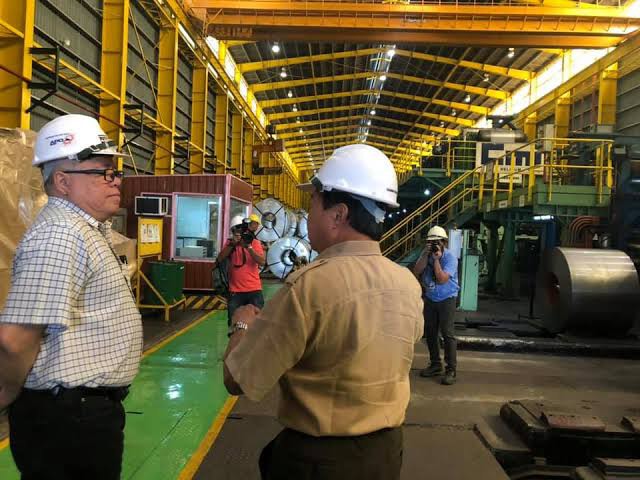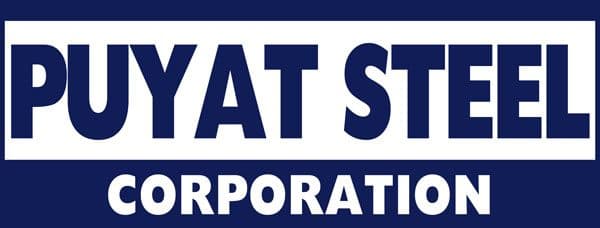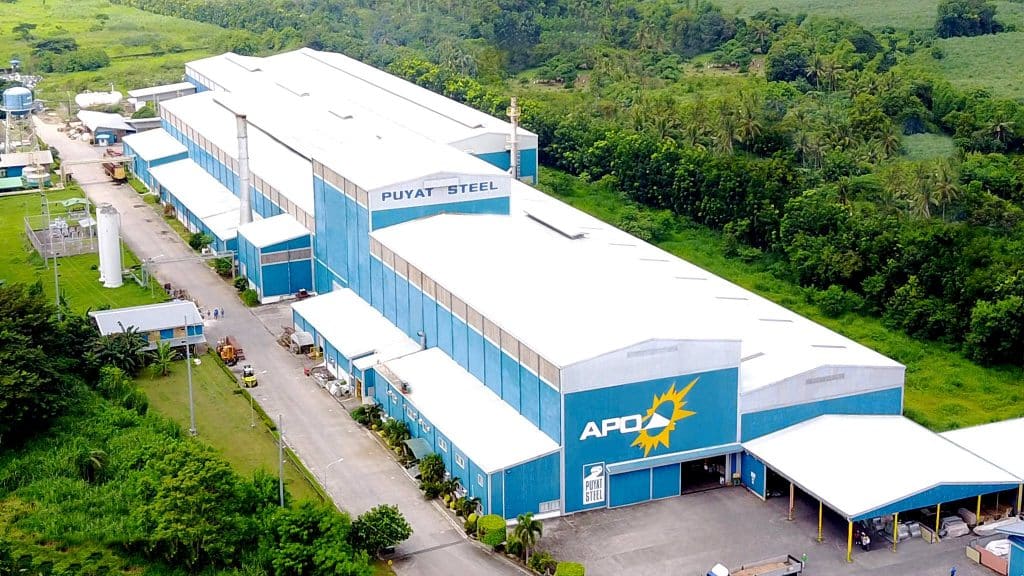As the leading manufacturer of GI sheets for roofing in the Philippines, Puyat Steel welcomes the new standards for galvanized steel coils and sheets set by DTI Bureau of Philippine Standards as outlined in the Dept. Administrative Order DAO 20-10. The Filipino steel manufacturing pioneer supports the mandate of DAO 20-10 as it recognizes the need for disaster resilient housing, and the protection of the consumer who may be uninformed of the standards of roofing products available in the market.
The Dept. of Trade and Industry publicly released last December 2020, the guidelines for DTI Dept. Administrative Order (DAO) 2010, which sets mandatory product standards and requires testing and certification of galvanized steel coils and sheets for roofing materials
What does this mean for the Filipino consumer? DTI Secretary Ramon M. Lopez has expressed that “This new technical regulation will ultimately ensure the safety and protection of the consumers which is also one of DTI’s top priority.” DTI Consumer Protection Group (DTI-CPG) Undersecretary Atty. Ruth B. Castelo underscored the necessity of having the regulatory scheme on galvanized coils and sheets.. “Due to its geographical location, the Philippines is constantly battered by tropical cyclones, with approximately 20-25 tropical cyclones entering the Philippine area of responsibility yearly. With this circumstance, it is crucial to ensure the integrity and strength of construction materials in the country to withstand frequent storms.”

DAO 20-10 sets the minimum total thickness for steel coils and sheets intended for roofing at 0.4mm, which can withstand more strong winds of 200kph and up. With the use of thicker steel sheets and the proper fastening to the roofing frames, roofs and houses will be more resilient during disasters. The minimum thickness of 0.4mm is more in line with the need for stronger construction and roofing materials. Comparatively, the 2017 National Housing Authority Design manual set the minimum standard thickness for roofing sheets at 0.55mm in line with their “parameters for disaster resilience for housing”, particularly in view of Typhoon Yolanda in 2013. While the standard of DAO 20-10 for minimum thickness of 0.4mm is less than the 0.55mm set by NHA, it is more acceptable than much thinner sheets still available in the market, since affordability or cost for end users/ low income families was also considered. DTI’s DAO 20-10 enforce the need to use stronger construction materials in roofing given both environmental and economic realities for the Filipino consumer.
DAO 20-10 was released in December 2020, after a series of Public Consultations conducted by the Bureau of Philippine Standards (BPS-DTI) in 2019. This is in line with the mandate of The BPS-DTI to serve as the National Standards Body (NSB) of the Philippines and to develop and implement standards for all products in the Philippines for the protection of the consumer.
A group within the steel products industry is opposing DAO 20-10 with the argument that these minimum standards will make the cost of a roof more expensive for the regular homeowner. However, the cost from using higher-standard roofing sheets, using the NHA Housing Design Manual guidelines for low-cost housing, will only increase the total housing cost by 1%, since roofing sheets only account for 3% to 5% of the total cost of the house. DAO 20-10 seeks to protect consumers, who are not that familiar with technical product standards, by enforcing minimum standard thickness and strength for roofing sheets available in the market. Puyat Steel Corporation fully supports and assures compliance of its products to DAO 20-10 as it acknowledges the need of the government to implement what is necessary for stronger roofing materials, to protect the end consumer from the challenges brought about by climate change.
You can also read the full featured article at BusinessMirror

